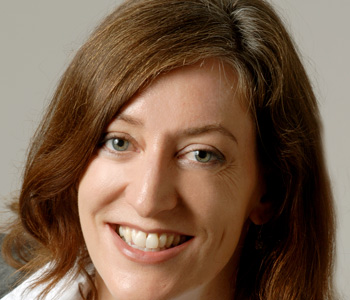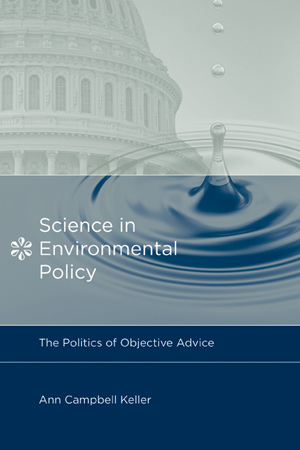
In this book, I examine the awkward position that scientists find themselves in when they enter environmental policy debates. In such debates experts try to square their appeal as objective, neutral participants with the necessary currency of the policy process—i.e. advocacy and persuasion. To learn about how scientists negotiate this difficult terrain, the book follows policy debates in the United States surrounding acid rain and global climate change. I argue that we cannot understand scientists’ participation without paying close attention to the specific context in which they engage in policy debates.
The book studies scientists in three distinct settings defined by recognizable stages of the policy process—agenda setting, legislation, and policy implementation. The analysis demonstrates that the norms governing scientists’ participation shift as each policy issue evolves.
What is striking, when comparing the nature of scientists’ participation across each stage of the policy process, is the extent to which scientists are allowed to act as advocates during agenda setting. As agenda setters, scientists have a role in placing issues on the formal policy agenda and framing those issues in ways that shape subsequent debate. Such behavior in later stages of policy making is both less likely to occur and more likely to spark conflict.
For example, during congressional testimony about climate change during the particularly hot summer of 1988, renowned NASA climate scientist James Hansen declared with “99 percent confidence” that the observed warming trend was attributable to climate change. His statement drew intense criticism from other scientists who felt that Hansen was overstating scientific confidence in predicting climate change.
The scrutiny Hansen faced over this episode, while typical in legislative policymaking, is almost never found in agenda setting. The book points to increasing formalization over the course of the policy process to explain the change in norms governing scientists’ participation. Agenda setting is a fairly informal and unstructured process while legislation and, to an even greater degree, policy implementation are characterized by explicit rules and procedures.
This increase in formality has consequences for scientists who participate in policymaking. Scientists enjoy quite a bit of leeway in deciding how they will balance the need for advocacy in policy settings with the notion of scientific objectivity. In the more formal policymaking settings, scientists face increasing pressure to appear objective.
“As agenda setters, scientists have a role in placing issues on the formal policy agenda and framing those issues in ways that shape subsequent debate. Such behavior in later stages of policy making is both less likely to occur and more likely to spark conflict.”
I came to this subject with a longstanding interest in the role of scientists in US policymaking. Growing up as the daughter of a climate scientist, I gained early exposure to the dual roles that many climate scientists play. On the one hand, they are researchers striving to advance scientific knowledge. On the other, they find themselves bearing the responsibility of raising public awareness about a truly global problem that is beset with uncertainty.
In graduate school, I sifted through thirty years worth of research on the role of science in policymaking and found that scholars had come to a stalemate over the question of whether scientists’ role in policymaking mattered at all. To over-generalize, political scientists tend to downplay the role of scientists and the role of expertise in policy processes. Social scientists who work under the heading of science, technology, and society (STS), on the other hand, argue that science profoundly shapes modern politics, though perhaps not in obvious ways.
As if to emphasize the point that these somewhat calcified positions needed further wrangling, two early reviewers of the book both dismissed the question about scientists in policymaking as old and settled. Luckily for me, each came down on a different side of the putative “settlement”—one reviewer argued everyone knows scientists have no role, and the other contended that scientists’ influence is well established.
These views persist, in part, because studies that ask what role scientists play in policymaking tend to rely on case material drawn from a single setting and do not seriously evaluate the generalizability of their findings. In this longstanding debate, I take a close look at the role that setting plays in shaping scientists’ participation.
My research design has a longitudinal component that tracks changes over time—we see an evolution in the policy debates for both acid rain and climate change. In addition, the research allows for a cross-sectional comparison that highlights common features of the two cases and calls out their respective idiosyncrasies.
The approach is relatively novel and contributes to theories of policymaking by showing the extent to which scientists’ role in agenda setting has been overlooked. While prior studies place agenda setting in the hands of prominent elected officials like presidents and senators, the evidence here suggests that these actors rely heavily on scientists’ framings of policy issues in the environmental domain.
In addition, the book challenges political scientists to consider the specific role of scientists in legislative policymaking. It includes an in-depth analysis of the witnesses participating in congressional hearings on acid rain and climate change. The book also speaks to constructivist approaches to the study of science in society by showing that, although ideas about science and objectivity in policy settings are often contested, not every claim about science and objectivity becomes the subject of debate. In fact, claims about the content of scientific research or who should speak for science are often broadly accepted during environmental policy debates.
The book should appeal to political scientists, STS scholars, those with a general interest in sociopolitical theater, scientists who participate in environmental policy processes, and anyone interested in the legislative and political histories of acid rain and climate change.
The book offers a systematic explanation of the changes in role-expectations that scientists who participate in environmental policymaking will face. It is rocky terrain that, for some scientists, is difficult to negotiate. To substantiate the argument, I rely on a mix of qualitative and quantitative analysis.
To get a flavor for this, one might look at the section in Chapter 3 where I present the different strategies scientists have employed in presenting their arguments during congressional hearings. Perhaps because political science, as a discipline, has tended to dismiss the role of scientists in policymaking, there has been almost no empirical work on scientists as a distinct type of witness in a congressional hearing.
The data here are fascinating. They make clear that scientists do have to wrestle with the idea that their participation is predicated on their objectivity. This issue arises repeatedly: members of Congress first invoke scientific objectivity and then try to lure scientists into making explicit policy recommendations. Here, we meet “boundary observers,” those scientists who will not make policy statements no matter how hard legislators push them, the “unapologetic boundary crossers,” those who readily offer a policy position, and the “apologetic boundary crosses,” those who tend to preface their policy positions with a statement like, “well, since that is not a scientific question, I can give you my opinion as a citizen.”
The chapter goes on to present findings from an in-depth content analysis of witness participation in acid rain and climate change hearings. Here, quantitative data bolster our understanding of scientists’ role in the hearings. These data establish that scientists are sought after as witnesses in both acid rain and climate change debates. Scientists, as a group, stand out from their non-science counterparts. Moreover, professional affiliation shapes their behavior. The pattern of their responses that I outline comes out most strikingly in the early years of congressional hearings on climate change. During this period, witness panels were dominated by academic scientists.
“Where scientists may face too little scrutiny in agenda setting, they may be so constrained in later stages of policymaking that we lose valuable input of intelligent, dedicated participants.”
Undeniably this research gets far down into the intricacies of environmental policymaking. I discuss witnesses in congressional hearings decades past, code subtle distinctions in their policy positions, worry about models of the policy processes debated largely by scholars in isolated camps, and pay painstaking attention to trends and context over time.
Yet normative arguments about the role of science and technology in society can mislead if they are not closely tethered to empirical investigation. By searching for a monumental answer to the role of science in policymaking—science either is always or is never influential—existing scholarship fails to grapple with how scientific expertise can be harnessed to forward both technical and democratic ends.
By contrast, the book showcases the tensions scientists face in supplying neutral expertise to a political system in search of ideas and solutions that, fundamentally, can neither be fully neutral or fully expert. It also shows a marriage of convenience between scientists and policymakers that allows scientists to participate as advocates in some policy venues and then restricts them under the banner of scientific objectivity. This settlement masks the subtle and often time-consuming negotiations involved in drawing normative conclusions from scientific research. Where scientists may face too little scrutiny in agenda setting, they may be so constrained in later stages of policymaking that we lose valuable input of intelligent, dedicated participants.
The book strives to expand our collective understanding of the science / policy interface. As governments increasingly find themselves managing complex scientific and technological undertakings, citizens should be keenly interested in assessing the role of science and expertise in the political arena.


Ann Keller is an assistant professor at the UC Berkeley School of Public Health. She holds a Ph.D. in political science from UC Berkeley and was a postdoctoral fellow with the Robert Wood Johnson Scholars in Health Policy Research Program. Keller is currently working on an NSF-funded study to analyze the organizational and analytic challenges of responding to global infectious disease outbreaks. Her research appears in the Journal of Public Administration Research and Theory, Public Administration Review, Frontiers in Ecology and the Environment, and The Nonproliferation Review.